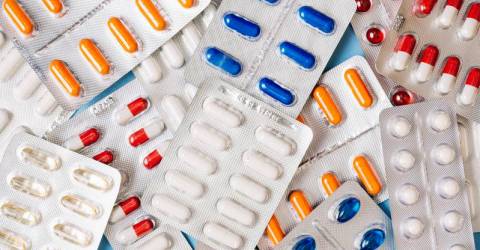PETALING JAYA:Indonesian President Joko Widodo has instructed his cabinet to tackle the problem of high prices of medicines and medical equipment in Indonesia, which are significantly higher than in neighboring Malaysia.
According to Channel News Asia, common medications for hypertension and high blood pressure cost two to four times more in Indonesia than in Malaysia.
Indonesian Health Minister Budi Sadikin said the president, known as Jokowi, stressed the need for the country’s medical industry to become resilient and prepared for future pandemics during a meeting at the country’s presidential palace on July 2.
Jokowi tasked ministers with developing strategies to improve the competitiveness of their pharmaceutical sectors.
The outgoing leader also questioned why the prices of medicines and medical devices in Indonesia could not be comparable to those in neighboring countries.
Malaysia, known for having some of the lowest drug prices in the world, offers medicines at costs significantly lower than the global average, according to the 2019 Medicine Price Index from UK-based digital health group Medbelle.
Reports indicate that the substantial price difference has led to an increase in online services that make it easier for Indonesian consumers to purchase medicines from Malaysia.
“The difference in the price of medicines (in Indonesia) is three to five times higher than that of medicines in Malaysia, which is 300 to 500 percent more expensive,” Budi said.
Previous reports on falling drug prices in Malaysia have cited examples such as Twynsta, Micardis and Lipitor.
In Malaysia, a box of Twynsta costs RM66 (IDR220,000), while in Indonesia, it is priced at IDR196,700 per blister. Similarly, Micardis and Lipitor are significantly cheaper in Malaysia than in Indonesia.
The affordable price of medicines in Malaysia has also made it a popular medical tourism destination for Indonesians. In 2023 alone, 500,000 Indonesians sought treatment in Malaysia, as reported by a local media outlet.
Budi attributes higher drug prices in Indonesia to inefficient marketing channels and governance issues.
He stressed that the country’s tax policy is not favourable to the domestic pharmaceutical industry, pointing out inconsistencies such as the imposition of a 15 percent import duty on raw materials for domestic assembly while finished medical devices are exempt from import duties.
“There is an inconsistency. On the one hand, Indonesia wants to encourage domestic production for industry, but on the other hand, the incentives are not appropriate,” he said.
Indonesian Industry Minister Agus Gumiwang Kartasasmita, who also attended the meeting, said Jokowi had called for improvements in governance, including easing taxes on the health sector.
The outgoing president urged ministers to boost investment in the health sector, including the production of medicines and medical devices.
Budi also mentioned that he, Agus and Indonesian Finance Minister Sri Mulyani Indrawati are expected to formulate a plan to reduce the prices of medicines and medical devices and report to the president within the next two weeks.


